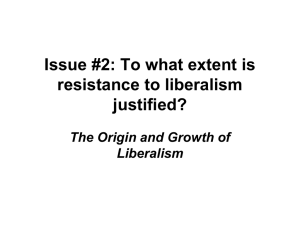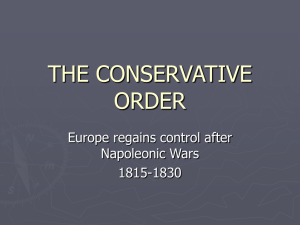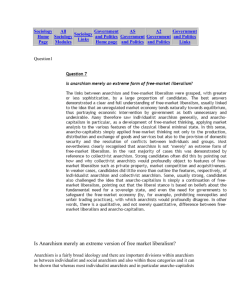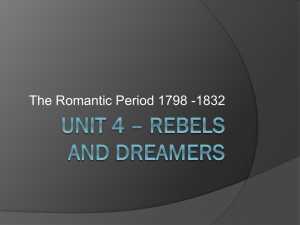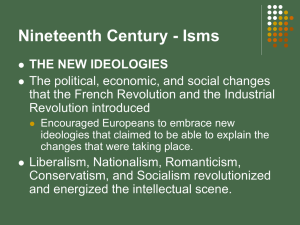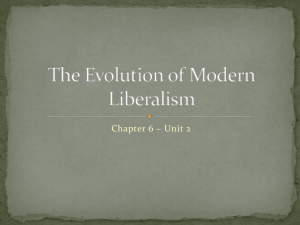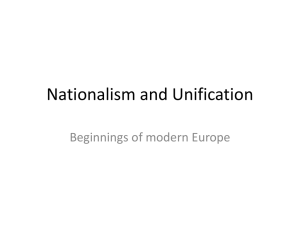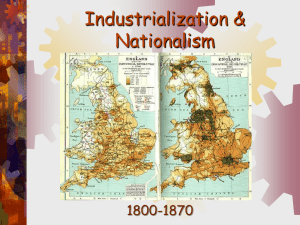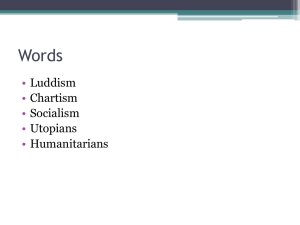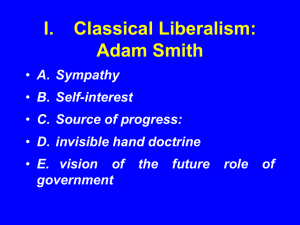Names and other terms for ch 29-31
advertisement
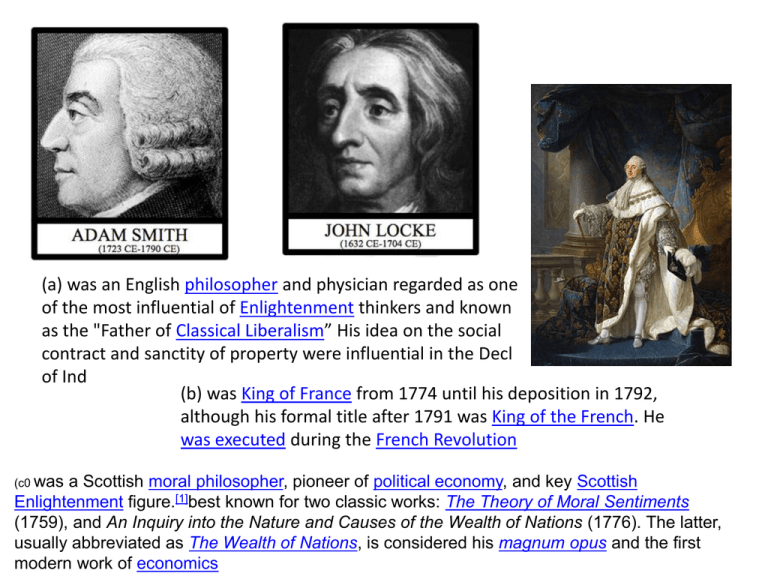
(a) was an English philosopher and physician regarded as one of the most influential of Enlightenment thinkers and known as the "Father of Classical Liberalism” His idea on the social contract and sanctity of property were influential in the Decl of Ind (b) was King of France from 1774 until his deposition in 1792, although his formal title after 1791 was King of the French. He was executed during the French Revolution (c0 was a Scottish moral philosopher, pioneer of political economy, and key Scottish Enlightenment figure.[1]best known for two classic works: The Theory of Moral Sentiments (1759), and An Inquiry into the Nature and Causes of the Wealth of Nations (1776). The latter, usually abbreviated as The Wealth of Nations, is considered his magnum opus and the first modern work of economics (a) was the leader of the Haitian Revolution. His military genius and political acumen transformed an entire society of slaves into the independent state of Haiti.[2] The success of the Haitian Revolution shook the institution of slavery throughout the New World (b) In the 1860s he engineered a series of wars that unified the German states (excluding Austria) into a powerful German Empire © a Venezuelan military and political leader. He played a key role in Latin America's successful struggle for independence from the Spanish Empire, and is today considered one of the most influential politicians in the history of the Americas. Wrote the JAMAICA Letter (acorn 5.3 b) (a) His conception of liberty justified the freedom of the individual in opposition to unlimited state control.[4] (b) was a German philosopher, economist, sociologist, journalist, and revolutionary socialist. His work in economics laid the basis for much of the current understanding of labour and its relation to capital, and subsequent economic thought.[5][6][7][8] He is one of the founders of sociology[9][10][11][12] and social science.[13][14][15] He published numerous books during his lifetime, the most notable being The Communist Manifesto (1848) and Das Kapital (1867– 1894). © was an eighteenth-century English writer, philosopher, and advocate of women's rights. During her brief career, she wrote novels, treatises, a travel narrative, a history of the French Revolution, a conduct book, and a children's book. Wollstonecraft best known for A Vindication of the Rights of Woman (1792), (a) was a Mexican Catholic priest and a leader of the Mexican War of Independence. Organized peasants and the poor to fight. (b) was a French military and political leader who rose to prominence during the latter stages of the French Revolution and its associated wars., he was Emperor of the French from 1804 to 1814 and again in 1815. Nationalism Nationalism comes from the word "Nation". a Nation is a group of people of (usually, but not always) the same race, history, culture, language and geographical territory. Nationalism is the belief that every nation has the right to rule independently the land that they lived on for the whole history. http://www.youtube.com/watch?v=_ojRQ15My7s E. The development and spread of na______________ as an ideology fostered new communal identities (such as the German nation, Filipino nationalism or Liberian nationalism). Italy & Germany (1871) The Social Contract What do these definitions have in common? (1) an implicit agreement among the members of a society to cooperate for social benefits, for example by sacrificing some individual freedom for state protection. Theories of a social contract became popular in the 16th, 17th, and 18th centuries among theorists such as Thomas Hobbes, John Locke, and Jean-Jacques Rousseau, as a means of explaining the origin of government and the obligations of subjects. (2) (Philosophy) (in the theories of Locke, Hobbes, Rousseau, and others) an agreement, entered into by individuals, that results in the formation of the state or of organized society, the prime motive being the desire for protection, which entails the surrender of some or all personal liberties (3) the voluntary agreement among individuals by which, according to any of various theories, as of Hobbes, Locke, or Rousseau, organized society is brought into being and invested with the right to secure mutual protection and welfare or to regulate the relations among its members. V. The development and spread of global capitalism led to a variety of responses. In industrialized states, many workers organized themselves to improve working conditions, limit hours, and gain higher wages, while others opposed capitalist exploitation of workers by promoting alternative visions of society(Utopian socialism, Marxism, Anarchism) Anarchism is defined as the “political theory holding all forms of government authority to be unnecessary and undesirable and advocating a society based on voluntary cooperation and free association of individuals and groups” Anarchy is Latin for anarchia meaning “lack of leader”, which is derived from the Greek word anarchos which literally means, “without government” Anarchism is formed on the idea that human beings are inherently good, and because of this they are better off without the corrupting institution of government. Anarchists believed that in the absence of government, humans would still have shared values which would prevent the chaos predicted by many. Anarchists maintain that if humans were given the freedom from oppressive institutions, their inherent good qualities would prevail Political groups that sought the abolition of all formal government; particularly prevalent in Russia; opposed tsarist autocracy; eventually became a terrorist movement responsible for assassination of Alexander II in 1881. anarchism A stateless society that allows total individual freedom. Anarchism is a political philosophy that advocates stateless societies often defined as selfgoverned voluntary institutions,] but that several authors have defined as more specific institutions based on non-hierarchical free associations.Anarchism holds the state to be undesirable, unnecessary, or harmful Anarchism vs Marxism • In his book State and Revolution, Lenin stated: “The proletariat needs the state only temporarily. We do not at all disagree with the anarchists on the question of the abolition of the state as the aim. We maintain that, to achieve this aim, we must temporarily make use of the instruments resources and methods of state power against the exploiters.” • Similarly, Trotsky wrote in an essay Stalinism and Bolshevisms: “Marxists are wholly in agreement with the anarchists in regard to the final goal: the liquidation of the state. Marxists are statist only to the extent that one cannot achieve the liquidation of the state simply by ignoring it.” - established ideal communities that focus on creating an equitable society where cooperation was emphasized and everyone works in accordance with their capabilities. based on a belief that social ownership of the means of production can be achieved by voluntary and peaceful surrender of their holdings by propertied groups which are turned over to communities III. To facilitate investments at all levels of industrial production, financiers developed and expanded various financial institutions. A. The ideological inspiration for economic changes lies in the development of capitalism and classical lib____________ associated with Adam ________and John Stuart Mill. Classical liberalism is a political philosophy and ideology belonging to liberalism in which primary emphasis is placed on securing the freedom of the individual by limiting the power of the government. The philosophy emerged as a response to the Industrial Revolution and urbanization in the 19th century in Europe and the United States.[1] It advocates civil liberties with a limited government under the rule of law, private property, and belief in laissez-faire economic policy Classical liberalism is a philosophy committed to the ideal of limited government and liberty of individuals including freedom of religion, speech, press, assembly, and free markets.[1] Classical liberalism developed in the nineteenth century in Western Europe, and the Americas. Although classical liberalism built on ideas that had already developed by the end of the eighteenth century, it advocated a specific kind of society, government and public policy required as a result of the Industrial Revolution and urbanization.[2 In response to criticisms of industrial global capitalism some governments mitigated the negative effects of industrial capitalism by promoting various types of reforms (such as state pensions and public health in Germany, expansion of suffrage in Britain or public education in many states). http://www.youtube.com/w atch?v=Kvk1NZDFvZU
